Voices: Traveling to Africa? Think twice about using the word ‘tribe’ By McKenzie Powell, Ohio University May 7, 2015
Posted by OromianEconomist in Africa, African American, Ancient African Direct Democracy, Ancient Rock paintings in Oromia, Chiekh Anta Diop, Muscians and the Performance Of Oromo Nationalism, Oromo, Oromo Nation.Tags: Africa, African culture, African Studies, Decolonizing Development, National Self Determination, Oromia, Oromo, Oromo people
add a comment
Please do not call the Oromo people (the Oromians) a tribe and by extension all African nations and nationalities:
You know Why?
Read the following: What Achebe wrote referring to his Igbo people is equally applicable to the Oromo.
Chinua Achebe the renowned African novelist and poet, the author of Things fall apart, the best known and best selling novel ever in his book Home and exile (Oxford University Press, 2000, pp.3-5) says the following:
“The Igbo people of south eastern Nigeria are more than ten million and must be accounted one of the major peoples of Africa. Conventional practice would call them a tribe, but I no longer follow that convention. I call them a nation. ‘Here we go again!,’ You may be thinking. Well, let me explain. My Pocket Oxford Dictionary defines tribe as follows: ‘group of people (esp. primitive) families or communities linked by social , religious or blood ties and usually having a common culture and dialect and a recognized leader.’ If we apply the different criteria of this definition to Igbo people we will come up with the following results:
a. Igbo people are not primitive; if we were I would not be offering this distinguished lecture, or would I?;
b. Igbo people are not linked by blood ties, although they may share many cultural traits;
c. Igbo people do not speak one dialect; they speak one language which has scores of major and minor dialects;
d. and as for having one recognized leader, Igbo people would regard the absence of such a recognized leader as the very defining principle of their social and political identity.
Therefore, all in all, Igbo people would score very poorly indeed on the Oxford dictionary test for tribe.
My little Oxford dictionary defines nation as, ‘ a community of people of mainly of common descent, history or language, etc, forming a state or inhabiting a territory. This may not be a perfect fit for the Igbo, but it is close. In addition I like it because, unlike the word tribe, which was given to me, nation is not loaded or derogatory, and there is really no good reason to continue answering a derogatory name simply because somebody has given it to you.”
Voices: Traveling to Africa? Think twice about using the word ‘tribe’
We see the word everywhere: throughout news reports of African struggles, in old films and on the latest television shows. You’ve probably even heard it used in a recent class covering topics related to history or anthropology.
“Tribe” has become a well-known, frequently used word to describe a particular group of people, specifically within a non-Western nation. The word seems to predominantly flood media outlets when an African ethnic group is involved in conflict or famine.
According to the Oxford Dictionaries’ newest definition of the word, a tribe is described as, “A social division in a traditional society consisting of families or communities linked by social, economic, religious, or blood ties, with a common culture and dialect, typically having a recognized leader.”
But what exactly are we implying when we use the word “tribe?” In an African context, when did this word originate and what words can we use as alternates?
Assan Sarr, assistant professor of history at Ohio University, says the word tribe first began spreading throughout Africa during the Scramble for Africa, or the period of European colonization of the continent.
“For much of Africa it seems that the word tribe became associated with the continent more during the 19th century, which means that it coincided with European imperialism,” Sarr says. “So, for Africans, the use of the word is really wrapped up in colonialism and that is one of the major reasons why Africans, or scholars who work on Africa, do not prefer the use of the term tribe to describe Africans.”
With a powerful history and past, the word “tribe” reflects social theories of the 19th century regarding stages of evolution and primitivism.
Even today, many negative connotations and falsities have continued with the use of the term to describe certain peoples within continents like Africa. The fallacies provoked by this pejorative language can include visuals of ethnic groups as clusters of half naked, barbarous, uncivilized and uneducated individuals with long feathers in their hair or spears in hand.
Definitions of the word also seem to point toward a society that exists outside of the state, one that is simple, small and static, and without the same structure as that which may be found in other complex societies and civilizations.
Sarr says the discrepancies are easily noticeable when comparing a commonly labeled tribal group, such as the Igbo, with that of Flemings, or the Flemish. The Igbo and Flemings are similarly categorized by their language and culture, and the Igbo are actually drastically greater in size — yet only the Igbo are considered a tribe.
“You don’t hear of the Irish tribe, or the Italian tribe, or the Spanish tribe. It’s always the various Arab tribes, or the Indian tribes, or the African tribes and that, for me, is one of the most potent issues that we need to be aware of. Here we are essentializing these people, we’re making them look distinctive,” Sarr says. “You are using it to refer to a group of people that share a certain historical experience, certain cultural traits, a language. This seems to me to be the perfect definition of an ethnic group, so why use the word tribe?”
Americans and Westerners are not the only people using this term, as some Africans refer to themselves as a part of a tribe. However, Sarr says that Africans do not use this word with the same assumptions and implications as those who brought it to the continent in the 19th century, or as those who may use it today in Westernized states.
In fact, as mentioned in Talking About Tribe by Africa Action, when some Africans are taught English, they are told that the correct, recognizable word to describe their ethnic group is “tribe.” In their own language, such as Zulu, the word used to describe their ethnic group actually translates to “people” or “nation.”
People and nation are two alternatives of tribe that can also be used in English to portray these multifaceted groups. Using the term “ethnic group” is also acceptable, or just simply calling them by their names – the Mende, the Wolof, the Hausa and so on.
“If they call themselves Igbo that means that word itself has a cultural meaning that the people themselves can associate with, rather than this foreign concept, this idea, that is used by others to describe them that does not capture all of their complex sets of ideas and histories and relationships,” Sarr says.
Using words like tribe and continuing to view places such as Africa as one place with one culture and one type of people is common, yet very detrimental. It is vital to be conscious of the history of the language we are using, and what our words may be negatively implying or stereotyping.
“How do we talk about Africa in a more intelligent, culturally sensitive, and helpful way? It’s this idea of unpacking all of the things that one acquired and grew up with,” Sarr says. “You have all these assumptions, these Eurocentric views, but once you start unpacking that and seeing that this is not true, then you begin to see some real interesting facts about the world.”
The Sumerians, Kemetic and Oromo April 9, 2015
Posted by OromianEconomist in Africa, African American, African Literature, Ancient African Direct Democracy, Ancient Egyptian, Ancient Rock paintings in Oromia, Chiekh Anta Diop, Language and Development, Meroe, Meroetic Oromo, Oromo, Oromo Culture, Qubee Afaan Oromo.Tags: Afaan Oromo, Africa, African culture, African Studies, Ancient Africa, Kemetic, Kush and Oromo, Oromia, Oromiyaa, Oromo people, Oromummaa, Sumerians
add a comment
” “Assyrians themselves are shown to have been of a very pure type of Semites, but in the Babylonians there is a sign of Kushite blood. … There is one portrait of an Elmite king on a vase found at Susa; he is painted black and thus belongs to the Kushite race.” The myths, legends, and traditions of the Sumerians point to the African Cushite as the original home of these people (see. Perry, 1923, pp. 60-61). They were also the makers of the first great civilisation in the Indus valley. Hincks, Oppert, unearthed the first Sumerian remains and Rawlinson called these people Kushites. Rawlinson in his essay on the early history of Babylonian presents that without pretending to trace up these early Babylonians to their original ethnic sources, there are certainly strong reasons for supposing them to have passed from Cushite Africa to the valley of the Euphrates shortly before the opening of the historic period: He is based on the following strong points: The system of writing, which they brought up with them, has the closest semblance with that of Egypt; in many cases in deed the two alphabets are absolutely identical. In the Biblical genealogies, while Kush and Mizrain (Egypt) are brothers, from Kush Nimrod (Babylonian) sprang. With respect to the language of ancient Babylonians, the vocabulary is absolutely Kushite, belonging to that stock of tongues, which in postscript were everywhere more or less, mixed up with Semitic languages, but of which we have with doubtless the purest existing specimens in the Mahra of Southern Arabia and the Oromo.”
https://oromianeconomist.wordpress.com/…/oromia-untwist-th…/The Sumerians were one of the earliest urban societies to emerge in the world, in Southern Mesopotamia more than 5000 years ago. They developed a writing system whose wedge-shaped strokes would influence the style of scripts in the same geographical area for the next 3000 years. Eventually, all of these diverse writing systems, which encompass both logophonetic, consonantal alphabetic, and syllabic systems, became known as cuneiform.
It is actually possible to trace the long road of the invention of the Sumerian writing system. For 5000 years before the appearance of writing in Mesopotamia, there were small clay objects in abstract shapes, called clay tokens, that were apparently used for counting agricultural and manufactured goods. As time went by, the ancient Mesopotamians realized that they needed a way to keep all the clay tokens securely together (to prevent loss, theft, etc), so they started putting multiple clay tokens into a large, hollow clay container which they then sealed up. However, once sealed, the problem of remembering how many tokens were inside the container arose. To solve this problem, the Mesopotamians started impressing pictures of the clay tokens on the surface of the clay container with a stylus. Also, if there were five clay tokens inside, they would impress the picture of the token five times, and so problem of what and how many inside the container was solved.
Subsequently, the ancient Mesopotamians stopped using clay tokens altogether, and simply impressed the symbol of the clay tokens on wet clay surfaces. In addition to symbols derived from clay tokens, they also added other symbols that were more pictographic in nature, i.e. they resemble the natural object they represent. Moreover, instead of repeating the same picture over and over again to represent multiple objects of the same type, they used diferent kinds of small marks to “count” the number of objects, thus adding a system for enumerating objects to their incipient system of symbols. Examples of this early system represents some of the earliest texts found in the Sumerian cities of Uruk and Jamdat Nasr around 3300 BCE, such as the one below. http://www.ancientscripts.com/sumerian.html
Being and Becoming A Global Nation: The #Oromo of East #Africa January 28, 2015
Posted by OromianEconomist in Africa, African American, Oromia, Oromo Diaspora.Tags: Africa, African culture, African Studies, Development and Change, Oromia, Oromiyaa, Oromo, Oromo culture, Oromo Diaspora, Oromo people, Oromummaa, United Nations
add a comment
Being and Becoming A Global Nation: The Oromo of East Africa
By Dorii Abbaa Fugug,
ayyaantuu.com
Globalization is a phenomenon that has been metamorphosing from negative imperialistic connotation background to more positive, progressive and cherished representation. However, it is still suffering from cynicism and prejudice as some group of nations continuously prospering on the expense of others mortification. Long before the existence of the term globalization and when the concept of globalization is not as comprehensive as today people were fighting over the dominance and some of them with the only rudimentary awareness of the glob and aspired to dominate the world mainly to maximize their sphere of influence or revenues. Others had mainly focused in strongly defending their territory and live in peace and tranquility for many centuries. The Oromo people were among those strong, democratic and peaceful nations in the region.
However, their unshakeable power in the region for many centuries prior to European conquest was deranged; and with help of colonizers’ superior armaments; the once dying Abyssinian enclave happened to control the mighty Oromo nation. Thus with extraordinary weaponry supplies and unrelenting advice of their masters, this “dependent colony” strived and maintained its power over the Great Nation for over a century.
During this time, the Abyssinians tried their best not only to completely eradicate the Oromo identities (language, cultural, etc.), but they had also committed ethnic cleansing in which the Oromo population was reduced in half. They prohibited the Afaan Oromo from spoken in public or in offices and further worked hard to make the Oromo totally ignorant of the world around them. In other words they destroyed all traditional relationships with their neighbors and effectively blocked their interaction with them and the entire world at large.
For instance, until the Italian period in 1935-41, the Oromo males were not allowed to go to market (magalaa/gaba’aa/ katama) as they were killed by Naftangas as “cursed and unruly enemies”. On the other hand, the Oromo were also neither surrendered their dignity easily or stopped fighting them during this time. Patriotic Oromos like Muce Ahmed Muce was remembered by countless banana trees he planted on the graves of Naftanyas he killed. He is also remembered by eating Minelik’s commander, waldegebriel Aba Seyxan’e ear. I am very sure many Oromos from different corners of the Country have similar stories to tell.
During the emperor period and afterwards, the Oromo were discouraged to have any access to outside world be it in terms of business, education or any travels. They were geven, derogatory mistrusting nomenclatures like Aligaza bay “galla” (unruly “gella”) during Menilek; Banda(collaborators) during Hailesillasie; sargogab ( infiltrators) during Mengistu and OLF during Melles Zenawi (wayyane) regime only for the purpose of justifying the killing or robbing of the innocent Oromos. Yet, the Oromo continued to abjure such Abyssinian aspersion and illegally trekked to the neighbouring Somalia, Yemen, Sudan and other Arab countries.
These assiduous and risky defiant encounters resulted in creating Oromo heroes like Waqo Gutu, Jarra Abba Gada, Elemo Qilxu and many, many others who were the key for the formation of Oromo Liberation Army. History also witnesses thousands of Oromo who were captured and massacred by Abyssinian militias while crossing the border. Some of them were even followed and killed in neighboring countries. People like Ayyub Abubake, Jahatani Gurmu, Mullis Ababa Gada, etc, are the case in point. It was in this defiant and antipathy of Abyssinian anathema that the most precious Oromo freedom fighters, the eleven members the top OLF leaders, perished in the hands of hostile Ogadenian bandits, while travelling to Somalia for diplomatic purposes.
However, with EPRDF policy of killing some Oromos and expelling other from the country, thousands of Oromians took flight out of the country, all for the purpose of defending the Oromo nation right for self-determination and to become one of free world nation. In a nut shell, the Oromo have paid ultimate sacrifice for their independence not less than Algerians or Eritreans in any standards which most of us should be proud of. As I tried to mention above I don’t mean in anyways that globalization is a trend or a phenomenon that Africans have benefited from and as a result we cherish it. No, not at all. My point is that While becoming a victim of globalization, in general, is a bad thing, yet being deprived of your national identity, as Oromo, in the globalized world, is the worst thing ever and the opposite is true.
My other point here is that although the Oromo as a nation with its own national boundary and sovereign rule is in waiting, our diaspora efforts are already making Oromians a global citizen/nation in short cut. Today the Oromo have very strong community organization, vibrant civic and political organizations in Diaspora. Most importantly the majority of the Oromo have long been mentally liberated and completely forgotten Ethipiawinet.
Now that, we have seen how the Oromo were defiantly absconding the country sadistically since the beginning of the Abyssinian colonialization of Oromia and particularly during the 1950s and 1960s of Jarra Abba Gada-Waqoo Guutuu generations, which brought about the Oromo freedom fighting that continued to swelter like conflagration .
On the other hand, unprecedented new fashion of defiant flees or mass exodus of Oromo happened after 1991-2 Revolution. While few OLF left the country through Bole many thousands had flocked to the different corners of the countries’ border. As it goes, if we cannot succeed through Bole we will be making it through Bale became a motto. Anyway, most of these people destined to refugee in neighboring countries only to seek eventual resettlement to the third countries (to western world). As a result most of these refugees succeeded in resettling in countries like Australia, Germany, Denmark, Finland, Norway, Sweden, the Netherland, the UK, The United States and Canada. Although the trauma of refugee camps and establishing in new counties are not simple matter, many of these refugees are quickly established themselves and involved in the doing Oromummaa projects.
Although deserting the country especially by few top OLF leader during the crisis was seen as an abhorrent historical disaster for the Oromo struggle for independence, there are people who believe that leaving the countries enabled the Oromo people to be free of oppressive government and work for the Oromo struggle from outside of the country. Leaving the former for history, we are witnessing the latter becoming the reality.
That doesn’t mean however every Oromo in Diaspora is working for the benefit of Oromians, there is a group of Diaspora Oromo that chose to seek yet another Ethiopiawinet citizenship. How on earth someone can seek a new citizenship in the country where he was born and where the citizenship right in the county is already by birth.
On the contrary, however, those who left the country for the genuine pursuit of Bilisumaa continued working on a plethora of Oromummaa projects here in Diaspora. For example, all the proliferated Oromo free Medias, strong community organizations and other civic organization like OSA, OSG, ORA, HRLHA, Mada Walabu, IOYA, Barnoota and many other organizations are only the tip of the iceberg. These actives are undoubtedly becoming the reliable means for the Oromo to being and becoming the global nation. Furthermore, these are the outcomes of the Oromo defiance against the Abyssinians policy of concealment, camouflaging and containment. It is also a remarkable confirmation of the total failure of Abyssinian century old struggle against the Oromo or the demise of Ethipiawinet for good.
Thus, the assiduous process of reintroducing or reconnection of the Oromo nation to the world community as independent entity, of course, has reached the stage where no one can relapse it. We can see a multifaceted movement in continuums. The diaspora Oromo Students Organizations, Oromo community associations, the OLF and OSA and Oromo Medias are the leading champions of these developments.
The OMN which is envisioned by young Oromo student Obbo Jawar Mohammed and his friends started its role as a giant media outlet. They mobilized the diaspora Oromo behind the mission and the OMN has successfully been launched in March 2014. The OMN not only informs about what is going on in the world concerning the Oromo and the Horn of Africa’s natios but is also instilled the moral and spiritual connection of the Oromians all over the world as well as demonstrated that the Oromo can do so many great things when worked together. It also showed the Oromo that for every problem they are suffering from now, the solutions are always right in their hand.
The other promising Oromo project of our time in diaspora is Toltus Tufa’s’ Education project(Afaan). Toltu Tufa is an outstanding Australian born Oromo girl who envisions the greatness of educating her people in diaspora. Started with small project in Melbourn, Adde Tultu expanded the horizon of her vision to reach all the Oromo children in every corner of the globe. Currently she is touring around the world to distribute the children books she authored.
Totlu project is so crucial for the Oromo people in diaspora for several reasons: First, Oromiffaa/Afaan Oromoo is one of the few languages that survived the language genocide. Please refer to the UN Genocide Convention definitions,( Art. 2b & 2e), which clearly stipulates what the linguistic genocide means, and how it occures. So Toltu’s project of teaching Afaan Oromoo is not only helps us to survive our languages from the threatening foreign media and scholastic language genocide in diaspora; but it makes our children be active future leader and inheritors of our struggle for independence. Secondly, it preserves Oromo identity as intact as it was. Toltu, herself, is a role model and charismatic leading light for our young foreign born Oromians.
There are many other emerging young talented Oromo leaders of Qube Generation like Toltu and Jawar whose achievements in the field of Oromumma are yet to be witnessed. As they are marching on natural course of actions( for a just cause), these young leaders are always successful to the detriment of those time-worn old gantuus Oromos who are derailed from the right trajectory.
The other acclaimed successful diaspora Oromo achievements are the naming of Minneapolis Oromo Street and the Melbourne Oromo community, hosting Oromo flag (right beside the Australian National flag) on Melbourne Street only to represent the Oromo nation as a distinct entity. These are shining Oromo community achievements in diaspora which shows the being and becoming of global nation. The OLF participation on “world stateless nations” conference in last year was nothing more than a confirmation for the world community that we are the nation without the state. Indirectly that means we are a state in exile or Oromia is the state in waiting.
Generally the Oromo in diaspora do actually know the fact that strengthening their organizational capacities and becoming viable global citizen enables them to revive and reconnect to their age older brotherly relationship with East African nations to work hard for the demise of the crumbling Ethiopian Empire. Many neighbouring nations have already joined hand in hand against tyrannical Ethiopian regime. Thus the disintegration of Ethiopia Empire will definitely paves the way for the integration and re-alliance of eastern African loving nations.
Mind you, while the Abyssinian in Washington reaffirmed their deep-rooted hatred to the Oromo her in the USA, the Somali and Oromo in Minneapolis demonstrated their Cushitic ties by working to together to make their dream of enshrining their names on the street of Minnesota. This trend of working together with brotherly spirit for the revitalization of old Cushitic bonds should continue with other East African communities.
Finally, we must be well aware of the multiple opportunities ahead of us to make difference in making the great Oromo Nation more known to the world communities and for the ultimate of Bilisummaa Oromoo. Each Oromo community association in diaspora has to bear the responsibility of doing at least one thing in their cities that make Oromo lined up among free nations. We become one of the independent World nations in our own rights!!!!
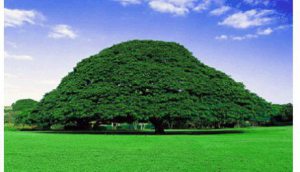


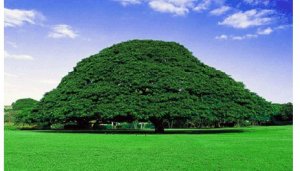




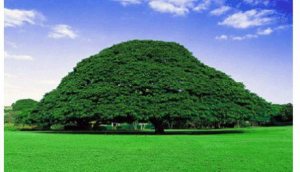
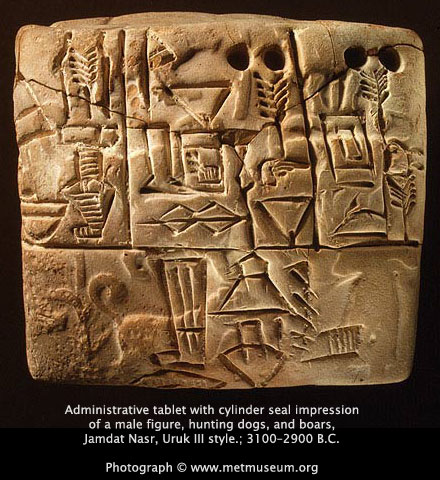
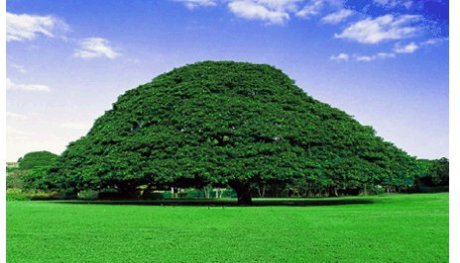
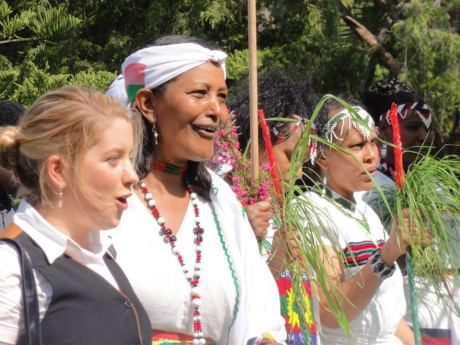
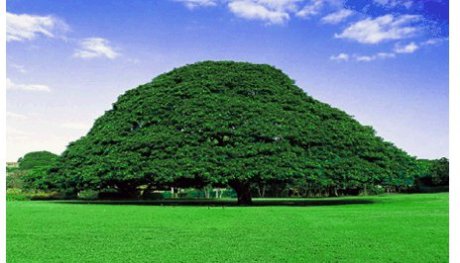







You must be logged in to post a comment.